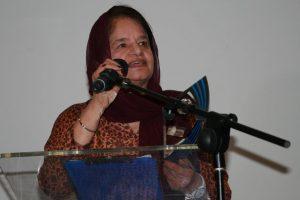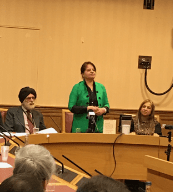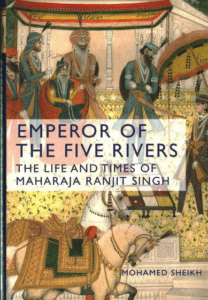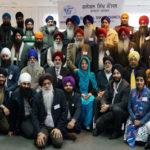
Organ Donation
Give the gift of life after your death, please talk to your family. This will give them the certainty that they need to support your decision at a difficult time. Talk about your faith, what the Gurus say.
Organ donation is when a healthy organ is given to someone who needs it. Thousands of lives are saved every year by organ transplants. For many patients in need of a transplant the best match will come from a donor from the same ethnic background. Kidney donors and recipients are matched by blood group and tissue type, and people from the same ethnic background are more likely to have matching blood groups and tissues. For other organs there is a need to match blood groups, but less of, or no requirement to match tissue types. People can donate organs and tissues whilst they are alive, but today we’re mainly going to discuss organ donation after death.
Due to a shortage of suitably matched donors, Black, Asian and minority ethnic patients often have to wait significantly longer for a successful match than white patients. If more people with these ethnic backgrounds donated their organs after death, or as a living donor, then transplant times would reduce.
Most donated organs come from people who have severe brain injury in which really important parts of the brain that are vital to maintain life are damaged. These patients receive treatment on a ventilator in an intensive care unit. When these areas of the brain become damaged, the chance of survival is very low and the patients are essentially kept alive by machines.
When all efforts to save the patient have failed, death is certified by a doctor who is completely independent of the transplant team. It is important to remember that the patient is the priority of the doctors. NHS staff are committed to saving lives; they do everything in their power to avoid the death of patients.
A panel of doctors have to declare the deceased as brain dead before the organs can be taken out. People who die of natural causes are usually not able to donate, because the donor’s heart must be beating recently for the organs to remain alive and viable for transplantation.
Organs that can be donated by people who have died include the heart, lungs, kidneys, liver, pancreas, and small bowel. Tissues such as skin, bone, heart valves and corneas also can be used to help others. One donor can help save up to 50 lives. During organ donation, the donor is kept alive by a ventilator, which their family may choose to remove. When organs are removed by the medical team, the body remains as intact as possible. The removal of organs is carried out with the greatest care and respect. The family can see the body afterwards and staff can contact the religious leader if the family wishes.
There is no age limit for organ donation. The oldest donor was 92 years old in the USA, in May 2020. There are a few certain conditions that will limit patients from donating, but the doctors will be aware of this at the time of donation. You can find out more information on the NHS website.
England has an opt-out system. This means that all adults in England have agreed to potentially become an organ donor when they die and can choose to opt-out if they wish. However, just because you’re on the register it doesn’t mean that when you die your organs will automatically be donated. At the time of death, the family is always involved in the decision and their consent is still needed in order for organs to be donated. It is therefore really important that you discuss the possibility of organ donation with your family beforehand, so that they are informed of what happens and are aware that this is a possibility.
At the time of death, the family will likely be processing a lot of thoughts and there is only a short window in which to donate, so a conversation beforehand is of utmost importance. It is a difficult and emotional conversation to have but will potentially save many lives. You can find out more information on the NHS website and by talking to your doctor.
Sikh teachings about organ donation
The Sikh philosophy and teachings place great emphasis on the importance of giving and putting others before oneself.
Importance of service
ਮੁਇਆ ਗੰਢ ਨੇਕੀ ਸਤੁ ਹੋਇ। p 143 Guru Granth Sahib (heron inward GGS)
The dead sustains their bond with the living through virtuous deeds
The true servants of God are those who serve Him through helping others.
Death
There is only one certainty that physical life comes to end. Life is grounded in death. Death is the natural progression of life.
- Physical death for everyone
- Physical death is certainty
- We all are in queue waiting for death
- The death is the return of the basic elements to their origins.
ਸਭੁ ਜਗੁ ਬਾਧੋ ਕਾਲ ਕੋ p 595 GGS
The world is tied under the sway of death.
ਮਰਣੁ ਨ ਜਾਪੈ ਮੂਰਤ ਪੁਛਿਆ ਪੁਛੀ ਥਿਤ ਨਾਂ ਵਾਰ p 1244 GGS
Death comes without asking any date or fixing any time.
ਪਵਨੈ ਮਹਿ ਪਵਨ ਸਮਾਇਆ ਜੋਤੀ ਮਹਿ ਜੋਤਿ ਰਲਿ ਜਾਇਆ
ਮਾਟੀ ਮਾਟੀ ਹੋਈ ਏਕ। p 885 GGS
Like breath merges in the air, the soul joins the bigger soul, the dust becomes one with dust.
ਪਾਂਚ ਤਤ ਕੋ ਤਨੁ ਰਚਿਓ ਜਾਨਹੁ ਚਤਰ ਸੁਜਾਨ
ਜਿਹ ਤੇ ਉਪਜਿਓ ਨਾਨਕਾ ਲੀਨ ਤਾਹਿ ਮੈ ਮਾਨ p 1426 GGS
O clever wise man know that the body is made up off five elements. Be sure says Nanak that thou shall blend with, from whom thy hast sprung.
ਉਦਕ ਸਮੁੰਦ ਸਲਲ ਕੀ ਸਾਖਿਆ ਨਦੀ ਤਰੰਗ ਸਮਾਵੀਗੇ ਸਮਦਰਸੀ ਪਵਨ ਰੂਪ ਹੋਇ ਜਾਵਹਿਗੇ p 1103 GGS
Like water in the water of the sea and the wave in the stream, I shall merge with God. Meeting with the supreme soul, my soul shall become impartial like the air.
The Sikh faith stresses the importance of performing noble deeds. There are many examples of Sikhs doing selfless service such as giving free food, groceries, and oxygen to the victims of coronavirus COVID-19.
‘It is entirely consistent with the spirit of service that we consider donating organs after death to give life and hope to others. In my family we all are for donating organs after death and would encourage others to do so.’ Right Honourable the Lord Singh of Wimbledon CBE, Director Network of Sikh Organisations, UK
Donating one’s organ to another so that the person may live is one of the greatest gifts and ultimate seva to humankind.
Seva or selfless service is at the core of being a Sikh: to give without seeking reward or recognition and know that all seva is known to and appreciated by the Eternal. Seva can also be donation of one’s organ to another. There are no taboos attached to organ donation in Sikhi nor is there a requirement that a body should have all its organs intact at or after death. Physical body is only a vassal in its journey, left behind and dissolved into elements.
‘One of Sikhism’s most basic messages-as advocated by Guru Nanak is for a human being to be of service to humanity. I believe every Sikh who has understood and inculcated this aspect of spirituality would consider his or her greatest honour to be of use to another human being in death. It certainly would be for me.’ Says Sikh scholar and writer, Dr Karminder Singh.
I end with the wisdom of our Guru, the Guru Granth Sahib:
ਨਰੂ ਮਰੈ ਨਰੁ ਕਾਮਿ ਨ ਆਵੈ।। ਪਸੂ ਮਰੈ ਦਸ ਕਾਜ ਸਵਾਰੈ p870 GGS
When a human being dies, does not help anyone, but when an animal dies, serves many purposes.




